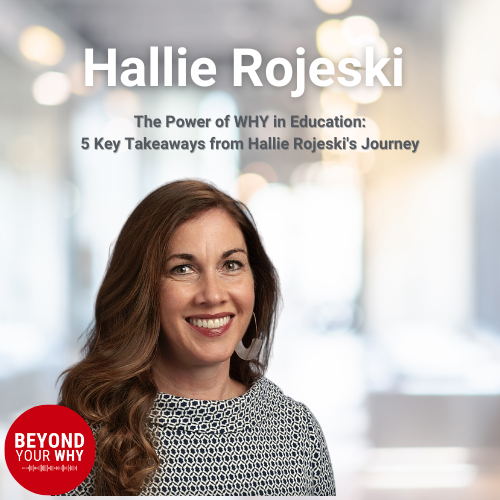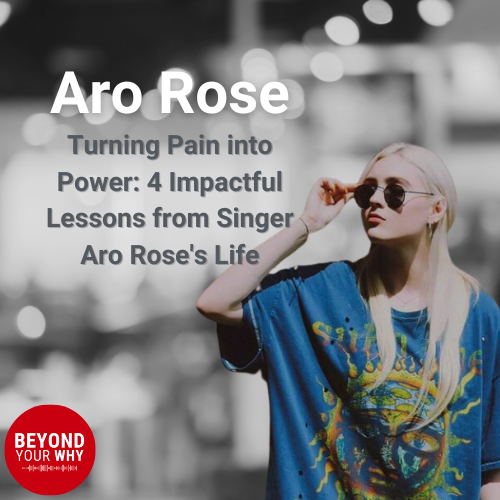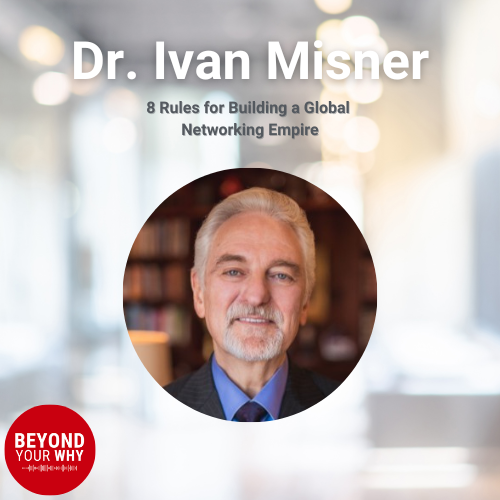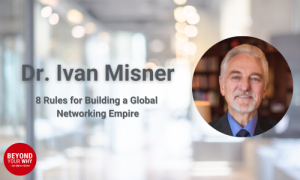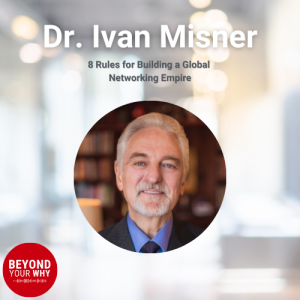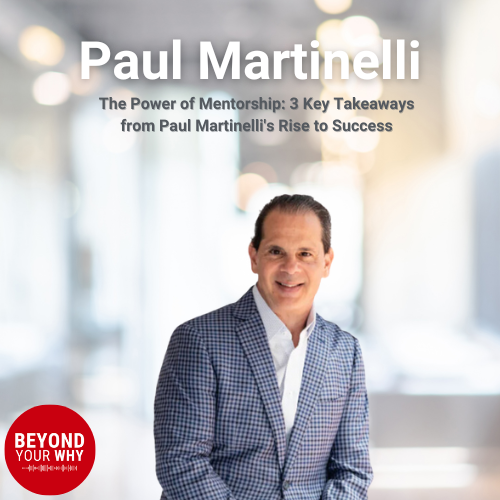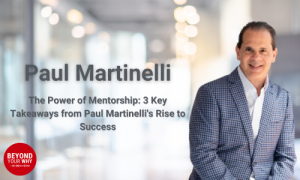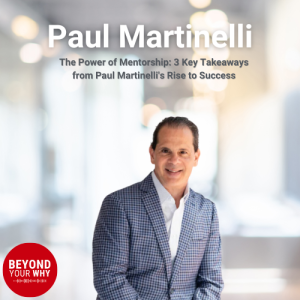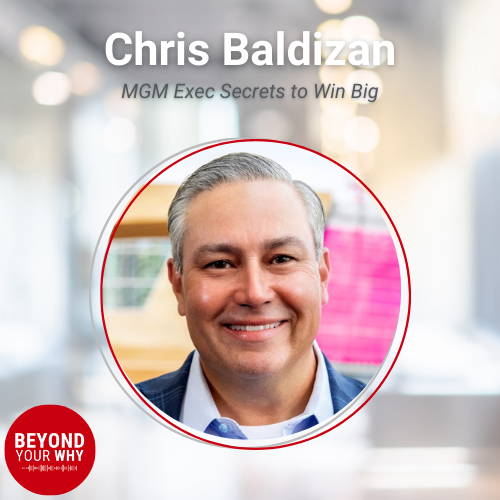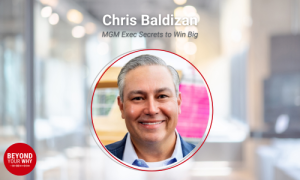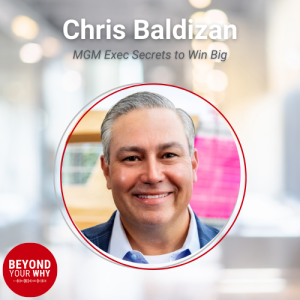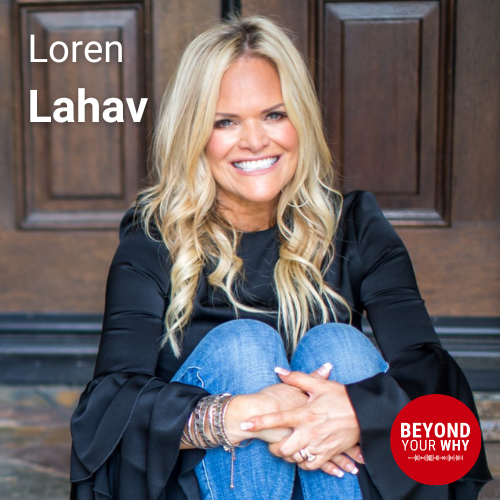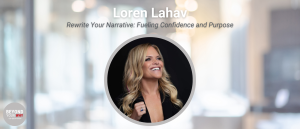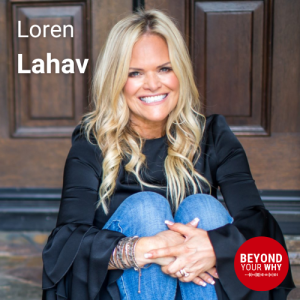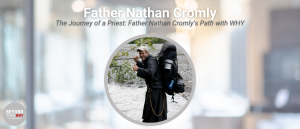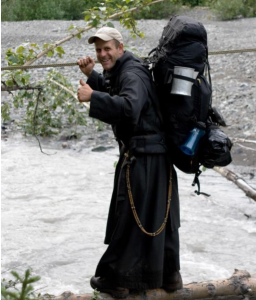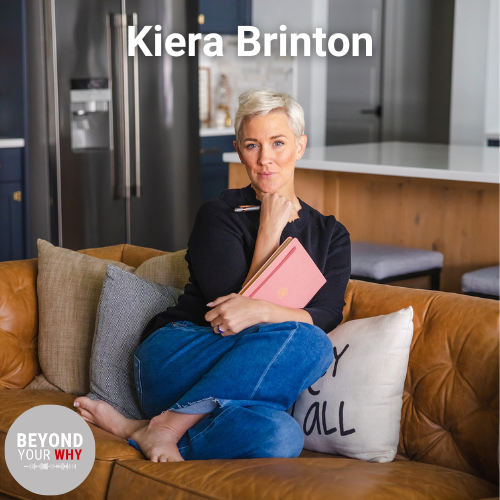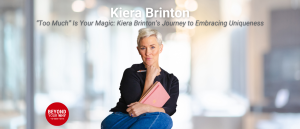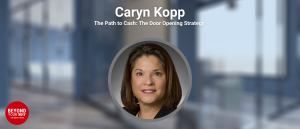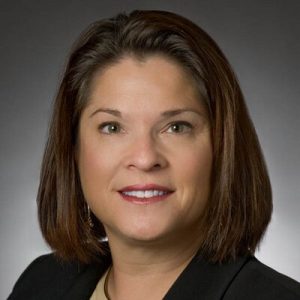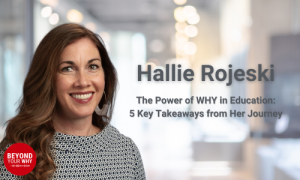
Guest: Hallie Rojeski
WHY.os: Better Way – Simplify – Make Sense
Hallie Rojeski is a trailblazer in the field of special education and leadership. With over two decades of experience, she stands out as the head of school at the John Crossland School in Charlotte, North Carolina, known for its focus on students with learning differences. Hallie’s unique journey, marked by a profound interest in neurodiversity sparked in her youth, has led her to become a leading voice in understanding and celebrating the different ways people learn and think. Her innovative approaches in educational leadership and her commitment to understanding individual motivations make her insights invaluable for educators, parents, and leaders alike.
In this episode, you will learn about:
- The Evolution of Special Education: Discover Hallie’s personal and professional journey and how it has shaped her approach to special education, emphasizing understanding and meeting diverse learning needs.
- Innovative Leadership Strategies: Gain insights into Hallie’s leadership style at the John Crossland School, particularly her focus on leveraging team members’ strengths and motivations using the WHY Discovery process.
- Empowering Neurodiverse Students: Explore Hallie’s future plans to implement the WHY Discovery framework with students, aimed at enhancing self-awareness and aligning their paths with intrinsic motivations.
Tune in to this enlightening episode to delve into the transformative world of special education with Hallie Rojeski, and learn how understanding the WHY can make all the difference in education and leadership.
Listen to the episode now below or wherever you get your podcasts!
Connect with Hallie Rojeski!
LinkedIn
Website: johncroslandschool.org
—
Watch the episode here
00:05:34 Discovering and improving through helping.
00:09:51 Find a better way.
00:11:29 Understanding individual strengths and weaknesses.
00:19:29 Embrace collaboration and shared purpose.
00:26:44 Understanding individual strengths is valuable.
00:28:29 Understanding your why brings clarity.
00:33:38 Collaborating to support neurodivergent students.
Listen to the podcast here
Empowering Neurodiversity in Education: Insights from Hallie Rojeski’s Innovative Approach
In the latest episode of the Beyond Your WHY Podcast, we had the privilege of hosting Hallie Rojeski, a visionary in the realm of special education and leadership. Hallie, as the head of school at the John Crossland School in Charlotte, North Carolina, brings over 20 years of rich experience in nurturing students with learning differences. Her dedication and unique approach to education make her an influential figure in the field. This blog post delves into the key takeaways from our enlightening conversation with Hallie, highlighting her groundbreaking strategies in special education and leadership.
Understanding Hallie Rojeski’s Journey
Hallie’s journey is a beacon of inspiration. Growing up with educator parents, her interest in special education was piqued in high school, leading to a lifelong commitment to understanding and celebrating neurodiversity. Her educational and professional paths reflect a deep-seated dedication to innovative teaching and leadership practices.
Key Takeaways from the Episode
- Revolutionizing Special Education: Hallie’s approach goes beyond traditional teaching methods, focusing on individual learning styles, particularly for students with dyslexia, autism, and auditory processing issues.
- Leadership Through Understanding: At the John Crossland School, Hallie has pioneered a leadership style centered on recognizing and utilizing each team member’s unique motivations, greatly enhancing team dynamics and effectiveness.
- Future-Oriented Educational Strategies: Hallie’s plans to implement the WHY Discovery framework for students, particularly high schoolers, aim to foster self-awareness and align their educational paths with their intrinsic motivations.
Why Hallie Rojeski’s Work Matters
Hallie Rojeski’s work is not just about education; it’s about shaping a future where every student’s learning needs and styles are recognized and valued. Her efforts in promoting neurodiversity in education are crucial in creating a more inclusive and effective learning environment.
Hallie Rojeski’s insights and experiences are a treasure trove for educators, parents, and anyone interested in the field of special education. Her innovative approaches and leadership strategies offer valuable lessons in understanding and empowering neurodiverse students. By embracing individual differences and focusing on each person’s ‘why’, Hallie demonstrates how education can be transformed to meet the needs of every learner.
Listen to the episode above or wherever you get your podcasts!
—
Discover your WHY.os now for 50% off! Click here to purchase today or visit whyinstitute.com/why-os-discovery/ to learn more!
If you love the show, please don’t forget to subscribe and leave us a review and rating on whatever platform you are using. Thank you so much for being here. I will see you in the next episode.
About Hallie Rojeski
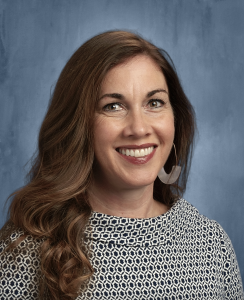
Hallie is passionate about leadership, supporting individuals with learning differences and celebrating neurodiversity. She has found a home serving as the Head of School at The John Crosland in Charlotte, NC. She brings over 20 years of teaching and leadership experience to Crosland. Hallie enjoys traveling overseas, trying out new recipes, and playing with Bumble, her Australian Labradoodle.

